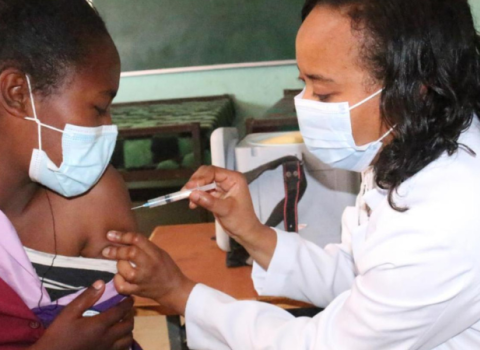The European Parliament has agreed its position on the upcoming EU pharmaceutical reform, but a panel debate by MEPs shows strong divisions remain

MEP Nicolás González Casares. Photo credits: Philippe Buissin / European Union
MEPs from across the political spectrum have called for a swift conclusion to the ongoing reform of the EU’s pharmaceutical legislation, to stimulate innovation and improve access to medicines.
“We have to close the pharma package in the next year,” MEP Nicolás González Casares, from the S&D group, told a conference organised by pharma industry lobby EFPIA on Tuesday.
After bitter negotiations, the European Parliament finally adopted its position on the reform in April, shortly before breaking up for the European elections.
The Council though has yet to agree on its stance. In its programme published this week, the Polish presidency of the Council, which will begin on 1 January, says it will “continue to work on the revision of pharmaceutical legislation”.
An agreement between member states could be reached in the first half of 2025 depending on the progress of negotiations, a Council official told Science|Business. Work will continue at technical level ahead of the next Health Council meeting on 13 June, where the topic is likely to be on the agenda.
Data protection debate
It will be the most significant reform to the pharma legislation in two decades, and has proved controversial as the Commission proposed reducing the baseline regulatory data protection for new drugs from eight to six years.
This refers to the length of time from marketing authorisation during which other companies cannot use the clinical trial data to apply for approval for generic drugs.
The proposal included an extension if the company launches the drug in all member states at the same time, but industry claimed this would be too significant a hurdle since it relies on national pricing and reimbursement decisions that are out of companies’ hands.
MEPs, who were divided between those wanting longer protection to incentivise investment, and those looking to shorten protection to enable generic drugs to be brought to the market more quickly, finally settled on seven and a half years of data protection, with several possible extensions.
During the EFPIA event, EPP MEP Tomislav Sokol, who was involved in the negotiations, argued it had been a mistake for the Commission to try to solve the issue of unequal access to medicines in the text.
“They tried to squeeze in the question of access in the pharma legislation, which was actually not made originally for that purpose. And here is why a lot of differences came to the fore,” Sokol said.
Sokol believes Parliament was able to strike the right balance, but Tuesday’s debate showed the question of data and market protection remains hotly contested.
Green MEP Ignazio Marino argued the length of intellectual property protection is a “big issue” in Europe, especially when coupled with lower levels of public investment compared to the US.
“If from one side, you have one competitor that can have a significantly larger amount of money and a longer period of intellectual property [protection], and here you have another competitor with much less money and much shorter intellectual property [protection], how can they compete?” said the former mayor of Rome.
In response, S&D’s González Casares said there needs to be a compromise, with industry also committing to invest in private research and innovation in Europe.
“We need fair competition of course, but when we give more than, seven, eight, nine years to a medicine, we are giving these nine years to a medicine also produced in China,” he said.
Regulatory burden
Recent data shows private spending on pharmaceutical R&D is growing at a slower rate in Europe than in the US and China, while China has also overtaken Europe in the discovery of new drugs.
Data protection is not the only issue, and the MEPs urged the EU to rethink its entire regulatory approach.
“If we do not find a way to compete with the others, we will just get eaten,” said Sokol.
“If you speak about the whole corpus of legislation we adopted, on the environment, on corporate sustainability due diligence, on many things, on different types of reporting, we added layers and layers and layers of additional conditions and burdens on our industry that definitely make us less competitive,” he said.
Renew Europe MEP Stine Bosse agreed that new “conflicting” legislation had “left our industry in confusion”.
“If we really want to address this access issue […] then we really have to sit down and think differently, and here’s where out of the box [thinking] comes into play, and also of course here engage with industry, and say, have you got any ideas?” Bosse said.
MEPs are pushing to keep health at the top of the EU agenda and to ensure the topic is not neglected as it was before the COVID-19 pandemic, with the Parliament’s health sub-committee set to become a full committee in its own right.
In February 2024, EU leaders cut 20% of the EU4Health programme’s budget, to divert €1 billion towards supporting Ukraine. The biggest battle of the upcoming mandate will be ensuring there is a sufficient budget for health initiatives, Sokol said.





 A unique international forum for public research organisations and companies to connect their external engagement with strategic interests around their R&D system.
A unique international forum for public research organisations and companies to connect their external engagement with strategic interests around their R&D system.